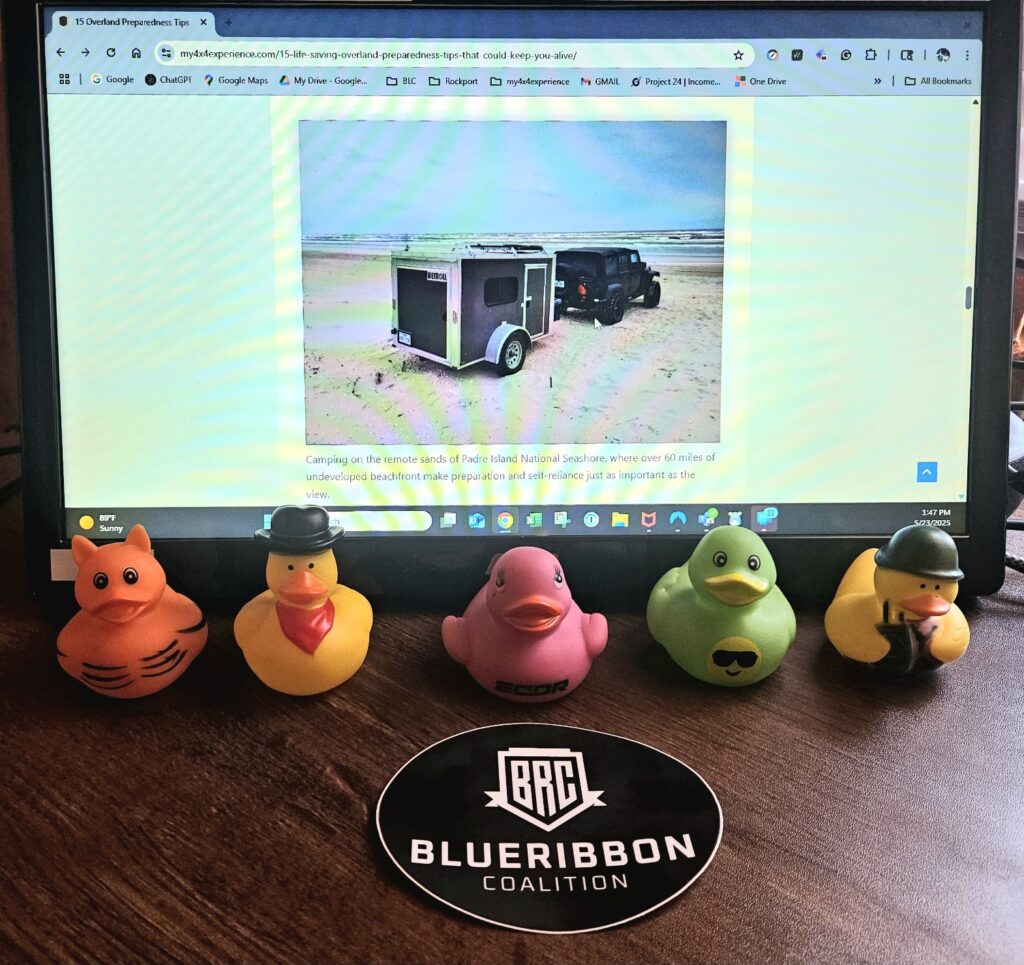
If you’ve been around the Jeep community for even a minute, chances are you’ve encountered the colorful little rubber ducks riding shotgun on someone’s dashboard. It’s part of a movement known as “Jeep Ducking” or simply “Duck Duck Jeep.” For some, it’s a joyful expression of community. For others—well, let’s just say emotions run high in both directions.
As a Jeep owner myself, I’ve received about five ducks over the years. They’re tucked away—not on display—and I’ve never personally “ducked” anyone else. It’s not part of the Jeep subculture I actively participate in. I’m more into wrenching, off-road trails, and the overland experience. But that doesn’t mean I dismiss ducking. In fact, I’ve come to see it as something much more important than I initially realized.
The Origin of Jeep Ducking: A Story of Light in a Dark Time
The movement started during the COVID-19 pandemic, when people were isolated and communities felt fractured. That’s when Allison Parliament, a Canadian Jeep owner, placed a small rubber duck on a stranger’s Jeep as a random act of kindness. The result? Smiles. Conversation. Connection.
One of the first stories Allison shared was about a big, gruff man who found a duck on his Jeep. She watched as a smile broke across his face—unexpected, genuine joy. That’s what the ducking movement is really about. A moment of levity and connection between strangers in a community that’s often rugged and independent.
But not everyone welcomes it.
When Joy Meets Resistance
Some Jeep owners take ducking to a whole new level, building “duck ponds” on their dashboards filled with dozens, even hundreds, of rubber ducks. For them, it’s become a signature of their personality and Jeep pride. On the flip side, there are people who violently reject the gesture—sometimes quite literally.
Allison herself was the target of such backlash. At one Jeep event, a person with an extreme hatred of the ducking trend stayed late, waited for the crowd to thin, and assaulted her. That’s not just rejection—that’s a disturbing escalation fueled by something far beyond simple dislike. No matter where you stand on ducking, this is not the kind of behavior that represents the best of the 4×4 or off-road community.
Let Light Shine—Even If It’s Not Your Thing
Here’s the thing: not everything has to be “your thing.” I don’t display ducks, and I don’t pass them out. But if someone gives me one? I accept it with grace. Why? Because someone spent their own money and took the time to give me something with the intent to bring a little joy into the world. Sometimes it’s not even about the Jeep owner—it’s their kid who’s excitedly placing ducks on Jeeps and watching for smiles.
We talk a lot about community in the off-road and Jeep worlds. We help each other with trail repairs. We recover stuck rigs. We swap stories around campfires. Ducking, at its heart, is just another way of connecting. A way for people on the periphery—kids, spouses, newcomers—to have a moment of participation and belonging.
A Call to Action: Respect the Joy
You don’t have to duck anyone. You don’t even have to like it. But let’s commit to not stealing someone else’s joy. If a kid places a duck on your Jeep and you chuck it across the parking lot, that’s not just rude—it’s cruel. And if you go further and confront people with anger or aggression over something as innocent as a rubber duck? It’s time to reevaluate whether you belong in a community built on respect and camaraderie.
So here’s the ask:
If ducking isn’t your thing, let it be someone else’s. Accept the duck, smile, and move on. You might just be making someone’s day.
P.S. Want to learn more about the origins of Jeep Ducking and the woman behind it?
🎧 Check out ModernJeeper Show Episode #211: “Mother Ducker” Allison Parliament — it’s a powerful, moving story worth hearing firsthand.
🦆 You can also visit the official Duck Duck Jeep website at officialduckduckjeep.com to see how the movement has grown and how you can get involved—if it is your thing.